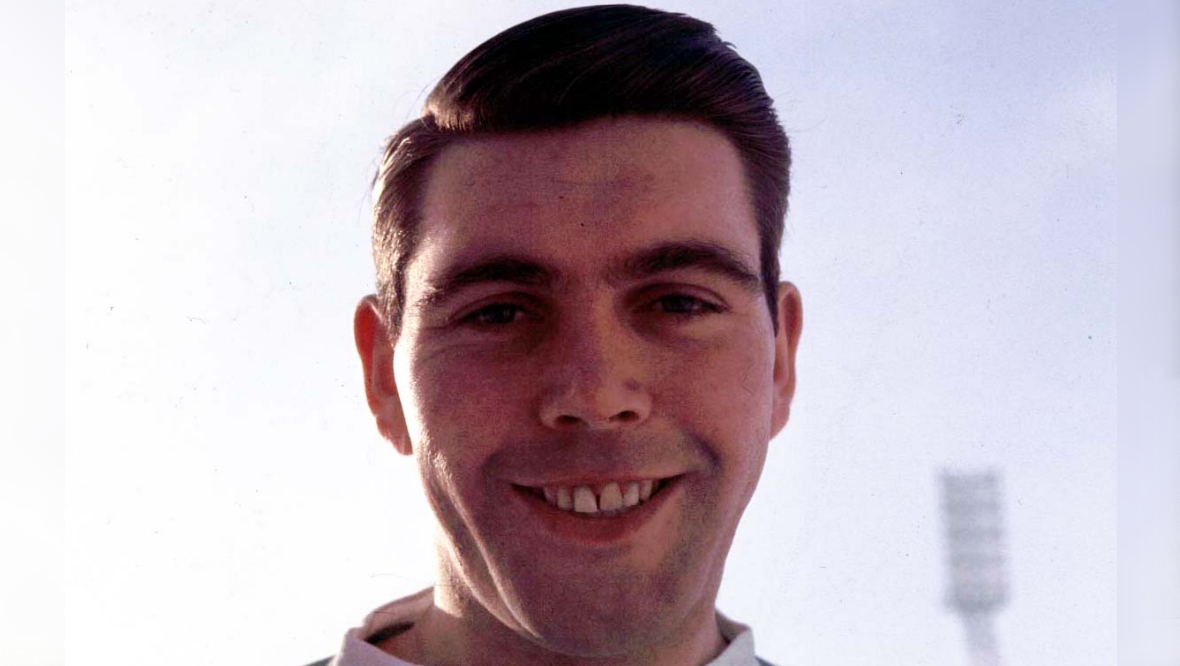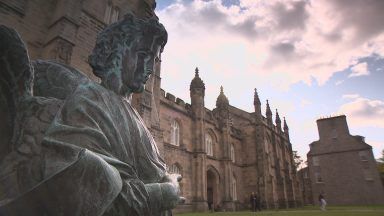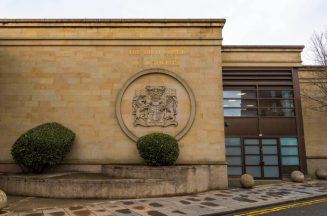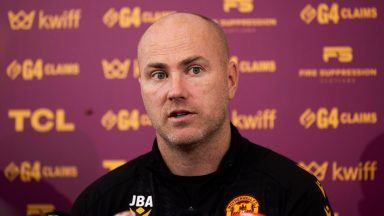John ‘Yogi’ Hughes who has died at the age of 79 was a central and perhaps under – appreciated member of Celtic’s famous Lisbon Lions squad.
A footballer of remarkable versatility despite a lumbering and at times cumbersome frame, he scored 189 times in 416 games in a twelve year period when the boy from Coatbridge dreamed the dream.
That dream turned to nightmare when Jock Stein effectively forced Hughes out of the door at Celtic Park in 1971 in a move that left the player heartbroken at the manner in which, for him, paradise was lost.
Most players who plied their trade under Stein talk in reverential tones about his legendary tactical nous, man management and PR skills and frequent authoritarianism.

Even those on the sharp end of Stein’s bark and menacing glower would concede that it was all done with only one aim in mind: to keep Celtic at the top.
John Hughes never bent the knee to the hagiography that surrounds a man whose legacy both defines Celtic’s highest achievement and yet serves as a reminder of how impossible it might be to re-create that night in Lisbon.
Hughes would say in a Celtic podcast years later that Jock Stein ruined his life.
To come from a Celtic family and wear the hoops is a source of unimaginable pride. To have it taken away, no matter the circumstances, is a searing wound the kind of which quite simply never leaves you.
If Hughes directed his ire at Stein then it can be viewed as an extent of the hurt he felt at no longer playing for a club and support that meant everything to him.

He was signed by Celtic from Shotts Bon Accord in 1959. His first goal in the famous jersey came against Third Lanark in a home game in August of 1960.
His early years coincided with a malaise in the clubs fortunes and there was a feeling that despite having some good players they were all massively under achieving.
Hughes caught the eye when he scored the winner against Slovan Bratislava in the quarter final of the European Cup Winners Cup in 1964. These were rare highlights in a period of sustained mediocrity for the club.
All of that changed with the arrival of Stein at Celtic Park in March of 1965, for he very quickly took a squad and turned them into a powerhouse in European football.
Hughes could play on either wing or indeed through the middle. His lack of pace and plodding style did not matter for he had two great attributes: physical strength and an ability to score goals.
He played centre forward in the pivotal Scottish Cup Win against Dunfermline in 1965, largely seen as the spark that ignited the glory years.
Later that year he netted twice from the penalty spot as Celtic defeated Rangers 2-1 in the final of the Scottish League Cup.
Despite playing in five of the nine European games in season 1966-67, injury ruled him out of the final in which his teammates wrote themselves and the club into the history books.

Lisbon 67 is immortalised to this day, an event with a timeless quality whose magnificence will be celebrated by Celtic supporters yet to be born.
Given the contribution of John Hughes it was only right that he was recognised as a Lion for his efforts to the cause were considerable.
He was part of the treble winning side of season 1968/69 as Celtic continued to exert an almost complete authority over the Scottish game.
The following season Hughes played a key role in the defeat of Leeds United in the semi final of the European Cup.
Leading 1-0 from a George Connelly goal at Elland Road, Billy Bremner equalised for Leeds in the second leg before Hughes sent his team on their way with an equaliser. Celtic won the game 2-1 for an aggregate 3-1 win.
That set up another European Final with Feyenoord of Rotterdam. Hughes played centre forward that night as the favourites went down to defeat against the Dutch after the match had gone to extra time.
Much has been written on the subject of how the favourites lost. Was it over confidence? Did they underestimate Feyenoord? Was the dressing room united?
Wherever the truth lies one of the legacies of defeat in Milan’s San Siro is that Stein decided it was time for some radical surgery to the Lisbon side.

There is probably a consensus that in his impatience to inject a freshness and urgency to keep Celtic at the top, Stein broke up the Lions too early.
John Hughes was undoubtedly a casualty of the managers impatience for change and he played for the last time for Celtic in 1971 in a European tie against BK 1903 Copenhagen.
The manner of his departure was brutal. He had no say in his transfer to Crystal Palace.
Even today, players can be dealt with in an insensitive manner, back then it was not uncommon but it was most certainly unfair on a man who had given so much and was so imbued in the traditions of the club and the people who followed it.
As he headed south he could reflect on 7 League Championship medals, 4 Scottish Cup wins and 5 League Cup medals. It was a haul that would mark John Hughes as a Celtic great.
He played for Palace for two seasons but only amassed twenty games and four goals. He was transferred to Sunderland but an injury in his debut game effectively ended his career in 1973.
He managed at a junior and senior level and had spells as a publican.
The release of his autobiography put his side of the story to charges that he was inconsistent as a player and that he was the victim of a younger bunch of players catching the eye in the early 1970s.
Fans have opinions and not all agree on the contribution of every player. But there are a few irrefutable facts about Big Yogi that make him a Celtic great.
He could be more flexibly deployed than most forwards. His commitment was never less than 100%. His medal haul is the envy of most footballers and his goal scoring feat places him sixth in the league table of most goals scored by a Celtic player.
With his passing another part of the Lisbon story passes too but his contribution lives in the eternity of that never to be forgotten era that made John Hughes such a Celtic favourite.
Follow STV News on WhatsApp
Scan the QR code on your mobile device for all the latest news from around the country


 SNS Group
SNS Group


























